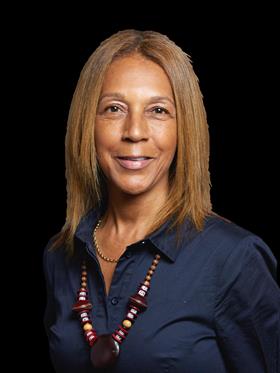Last week, I spoke in the House of Commons to advocate for an amendment to the Sentencing Bill which would create a child cruelty register.

This register would address a serious gap in our existing system – one that leaves vulnerable children exposed by failing to ensure that individuals convicted of serious offences against children are adequately monitored and managed after serving their sentences.
As a former lawyer, and now as a legislator, this campaign holds deep personal significance for me. Prior to entering parliament, I practised as a legal aid family lawyer for more than two decades, specialising in child abuse and domestic violence cases. On an almost daily basis, I appeared in county courts throughout the South East obtaining non-molestation injunctions and occupation orders, primarily on behalf of women and children at risk. Some perpetrators went to prison following criminal proceedings, but upon release far too many would go straight back to their former homes and abuse their families all over again. It was like a vicious circle. Yes, prison can of course be good for rehabilitation, but tragically, many ex-offenders remain a risk.
The proposed register would require individuals who have been convicted of specified child cruelty offences to supply personal details and relevant information to the police, to be retained on record. This would allow the police and probation services to maintain oversight of high-risk ex-offenders post-sentence.
From the very beginning, this campaign has been led with extraordinary courage by Paula Hudgell, adoptive mother of Tony Hudgell. Paula and Tony are my constituents in Maidstone and Malling, and even while battling stage 4 terminal cancer, Paula continues to pour her energy and determination into fighting for better protection for children. Tony, at the age of just 41 days old, was so badly abused by his birth parents that his legs had to be amputated.
The parents were sentenced to 10 years’ imprisonment, served eight, and have now been released. They will both be monitored and managed by the police and probation for the remaining two years of their sentence, but after that, there will be nothing. No monitoring, no management, no notification requirements of changes in their circumstances. Their case details will simply be archived.
In my professional experience, those who commit serious offences frequently relocate — often across county lines — and deliberately avoid detection by failing to engage with health, social, and other public services. The notification requirement in this amendment would create a vital mechanism for identification, helping to prevent vulnerable families from falling through the cracks. A Child Cruelty Register in other respects would operate in a very similar way to the Sex Offenders Register.
I am disappointed that this amendment was not passed earlier in the week in the House of Commons. However, I take encouragement from the very strong cross-party support it received — from all parties except Labour — during last week's vote.
In his response at the dispatch box to the proposed introduction of a Child Cruelty Register, justice minister Jake Richards MP said: 'I have asked officials in my department to look at what can be done within the criminal justice system, which sits within the Ministry of Justice, to track child abuse offenders and offences involving child cruelty. I again thank the hon. Member for Maidstone and Malling for her work on this issue. I look forward to working with her, and with other hon. members who have shown an interest in this issue, to achieve an important change in safeguarding that is absolutely necessary.'
Later, I intervened on the minister asking, 'I hear what the minister has to say. Will he bring forward a government amendment to introduce a child cruelty register when the bill moves to the House of Lords?”
Richards responded: 'We will speak to Home Office colleagues and others to look at the possibility of doing that, absolutely. The hon. Lady has my word—as does her constituent, who is no doubt watching this debate carefully—that I will work at speed on this issue, but I do not want to make promises that the government cannot keep.'
I was also encouraged to hear separately from David Lammy, the justice secretary and deputy prime minister, who confirmed that the government is committed to pursuing this change in the law and intends to work towards implementing it.
Every child deserves to grow up safe from fear and abuse. The creation of this register would help prevent future tragedies by ensuring that those who have committed serious acts of cruelty cannot evade proper oversight.
The Sentencing Bill is scheduled for its second reading in the House of Lords on 12 November, and I will continue to work tirelessly — across party lines — to hold the government to its stated commitment on this vital issue.
Helen Grant MP is shadow solicitor general and a non-practising solicitor































1 Reader's comment